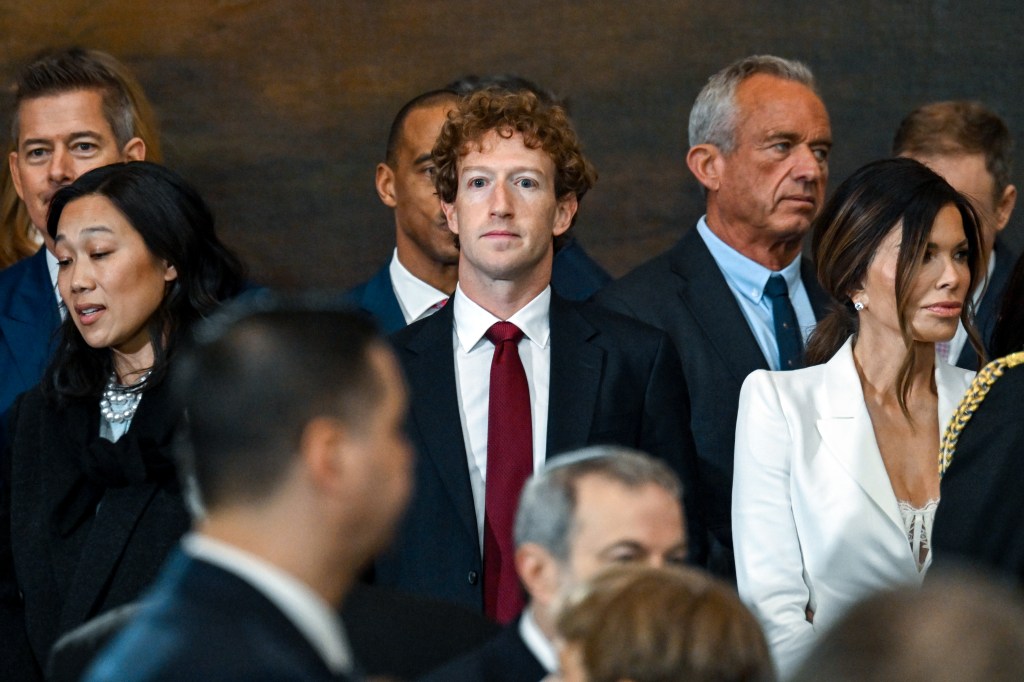UPDATED, with additional details of testimony: Meta CEO Mark Zuckerberg took the witness stand in the Federal Trade Commission’s antitrust trial, defending his company against the government’s claim that it is an anti-competitive monopoly that has tried to eliminate rivals.
In a dark suit and white and blue tie, Zuckerberg was confronted with a series of emails and company messages in the lead-up to the company’s 2012 purchase of Instagram.
In one message to his executives in February, 2012, Zuckerberg broached the idea of buying Instagram “even if it costs [about] $500 million.” He noted that “one concerning trend is that a huge number of people are using Instagram every day …[and] only uploading some photos to Facebook.”
At the time, Facebook was building its own mobile photo sharing app, Facebook Camera, but Zuckerberg expressed frustration with its progress.
Watch on Deadline
Facebook Camera “might be a very good first step but we’d be very behind, in both functionality and brand on how one of the core use cases of Facebook will evolve in the mobile world, which is really scary and why we might want to consider paying a lot of money for this.”
On the stand, Zuckerberg said “clearly I was trying to think through whether we should buy them.”
In the message to executives, Zuckerberg also talked of buying Instagram but not adding any more features to it, as Facebook built out its own photo sharing app.
The FTC claims that Facebook bought Instagram to eliminate an upstart rival and retain its market dominance.
The purchase of Instagram was announced in April, 2012.
The FTC’s attorney, Daniel Matheson, asked Zuckerberg if it was your plan to just keep Instagram running and not add any more features,” with all development going to Facebook.
Although Zuckerberg acknowledged that it “must have been how I was thinking about it,” his remark was early in the process of assessing whether to buy Instagram. “It’s not what we ended up doing,” Zuckerberg said. Meta’s attorney has pointed to the upgrade that Meta has made to Instagram through the years, with a dramatic increase in users.
At the time, Facebook had raised capital from an initial public offering and was in a position where it could consider acquisitions rather than building in house.
Earlier in the afternoon, Matheson tried to show that despite changes across social media over the past two decades, Facebook’s core driver remains family and friend connections. That is important to the government’s case, as it has argued that Meta holds a monopoly over that segment of social media.
In his testimony, though, Zuckerberg said that the interest “has gotten built out a lot more than the friend part.” The portion of users turning to Facebook to see news about their friend connections has gone down “quite a bit” in favor of discovering what is going on in the world around them. The feed, Zuckerberg said, has “evolved into a discovery engine.” Meta’s attorney argued that they compete on a much larger playing field than merely news feeds from friends and family members, to short-form videos and messaging.
RELATED: Mark Zuckerberg Meets With Donald Trump At Mar-A-Lago
In one email, sent in April 2022, Zuckerberg wrote to two Meta executives, Tom Alison and Christopher Cox, about his concerns that Facebook’s “cultural relevance” may be waning. Zuckerberg wrote about potential changes in strategies, including what he referred to as a “crazy idea” to wipe out everyone’s friend connections “and having them start again.”
Matheson tried to highlight how friends and family connections remained the “core value proposition.” He pointed to the message that new users get before they register, which “tells them to log in and connect with friends and family and people you know.”
Asked about the message, Zuckerberg said, “I am not sure what it is today,” adding that Facebook “probably tested different messages” in that marketing to new users.
The post Mark Zuckerberg, Testifying In Meta Antitrust Trial, Confronted Over Decision To Buy Instagram As Facebook Sought To Create A Rival — Update appeared first on Deadline.




